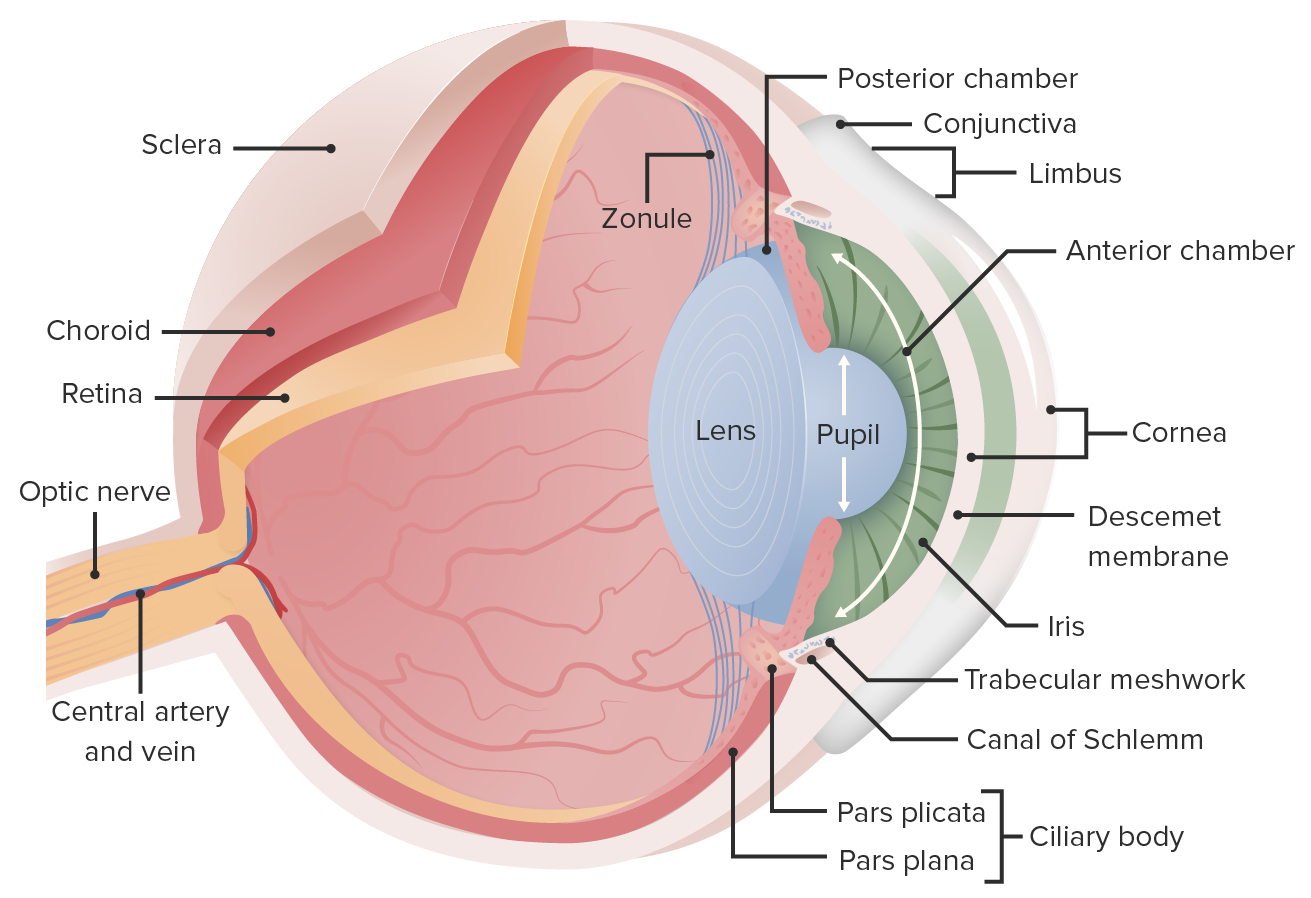Playlist
Show Playlist
Hide Playlist
Uveitis: Etiologies
-
Slides Optic Pathology Uveitis.pdf
-
Reference List Pathology.pdf
-
Download Lecture Overview
00:01 Infectious etiologies for Uveitis are many. 00:05 Viral infections are probably the most common out of this list. 00:08 We're going to have four different causes but viruses are probably going to be number one on the hit parade. 00:14 So Herpes simplex 1 and 2, Cytomegalovirus, particularly immunocompromised patients, Varicella zoster. 00:21 Those are going to be the more common causes for uveitis overall of the infectious form. 00:27 Bacterial infections can also do this but tuberculosis, bartonella, that's cat scratch disease. 00:33 Those are going to be less common overall particularly in developed countries. 00:38 In developing portions of the world, these may be an important contributor to infectious uveitis. 00:45 Fungal infections can also in certain endemic areas be an etiology again, these are much less common than the viral causes of uveitis. 00:55 And histoplasmosis, blastomycosis, candidiasis. 00:59 And then finally, parasitic infections- toxo, cysticercosis, onchocerciasis. 01:04 All of these things not quite as common, particularly in the developed portions of the world. 01:11 There are also many immune mediated etiologies. 01:14 So uveitis, inflammation of the uvea, inflammation of the choroid, of the ciliary body, of the iris actually, is part and parcel frequently occurs in other immune mediated diseases, autoimmune diseases and other places in the body. 01:31 So uveitis may be a secondary manifestation of Multiple sclerosis or a Behcet's disease, a kind of an oral mucosal and vascular inflammatory autoimmune disease. 01:45 It can be part and parcel of Juvenile idiopathic arthritis, it can be part of Sarcoidosis, it can be part of Tubulointerstitial nephritis and uveitis that's an entity (TINU). 01:57 You can have it as part of Ulcerative colitis, you can have it as part of Ankylosing spondylitis, you can have as part of Crohn's disease, you can have as part of Systemic lupus erythematosus. 02:09 So, any of a variety of autoimmune diseases probably as a consequence either immune complex deposition or a secondary T cell that response that is recognizing some antigenicity within the eye is responsible for driving immune-mediated uveitis. 02:30 There are also therapies that can cause uveitis and these are tend to be idiosyncratic, not everyone who gets these drugs is going to get it. 02:39 So, Rifabutin, which is used for the treatment of atypical mycobacteria infections in patients with HIV AIDS can cause idiopathic uveitis. 02:50 Some patients who receive the Fluoroquinolones such as ciprofloxacin for bacterial infection can get uveitis. 02:58 Some intravitreal medications, for example, if we get into the vitreous for other reasons, vancomycin, that can induce it, again, not an every patient. 03:09 Kinase inhibitors, particularly the BRAF kinase inhibitors use for the treatment of melanomas can be a cause of uveitis. 03:17 And then, if we muck around in the eye with an intraocular surgery, that just inflammation that's associated with intraocular surgery trauma can lead to an inflammation, secondary inflammation. 03:33 So, overall, idiopathic, even though we talked about viruses and we talked about all those other manifestations, secondary autoimmune. 03:41 Idiopathic uveitis is the most common etiology, meaning... 03:44 Yeah, you got it. 03:46 We don't know what's causing it but we're going to treat it because it can lead to significant morbidity, loss of vision, and we're going to treat it because it's an inflammation and we know how to treat inflammation.
About the Lecture
The lecture Uveitis: Etiologies by Richard Mitchell, MD, PhD is from the course Diseases of the Anterior Chamber and Uvea.
Included Quiz Questions
What virus commonly causes uveitis?
- Cytomegalovirus
- Influenza virus
- HPV
- Paramyxovirus
- Poliovirus
What is implicated in the immune-mediated etiology of uveitis?
- T cell-mediated response
- B cell-mediated response
- T and B cell-mediated response
- RBC-mediated response
- Neutrophil-mediated response
What is the most common cause of uveitis?
- Idiopathic
- Viral infection
- Bacterial infection
- Autoimmune disease
- Iatrogenic
Customer reviews
5,0 of 5 stars
| 5 Stars |
|
5 |
| 4 Stars |
|
0 |
| 3 Stars |
|
0 |
| 2 Stars |
|
0 |
| 1 Star |
|
0 |




